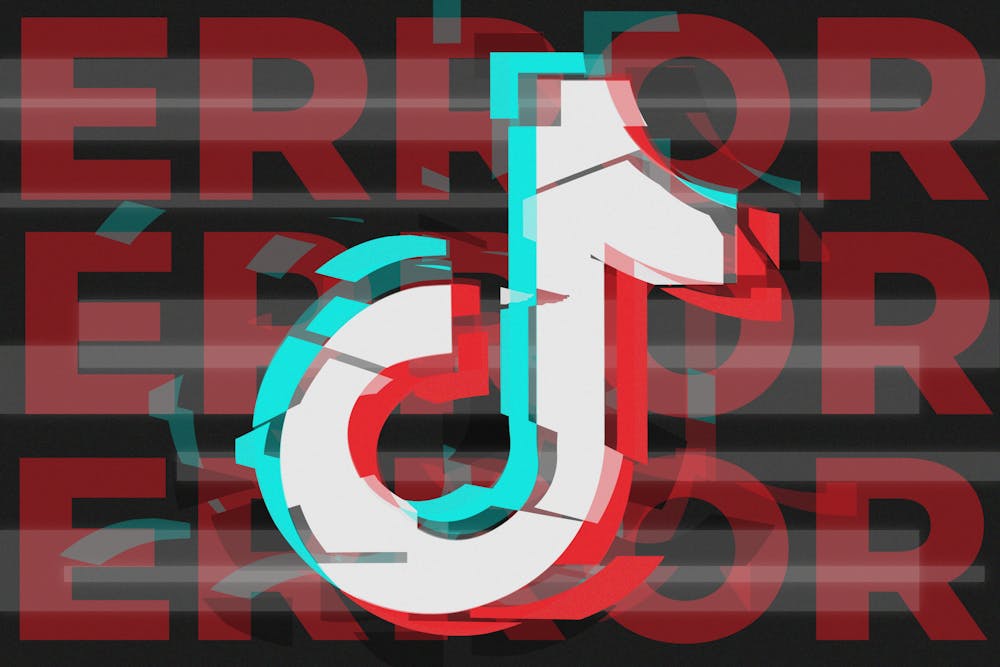TikTok has recently been banned on multiple universities' Wi-Fi due to potential security threats, but the bans are not helpful in protecting students and faculty's data. Putting a ban on TikTok would do more harm than good for the students at USC.
Multiple universities across 30 states have issued a TikTok ban on government-owned and military-owned devices because of security concerns about the app’s parent company, ByteDance. The FBI is concerned that the company may share the data collected from American users with the Chinese government. Even the South Carolina government has banned TikTok on state owned devices due to fears of a security breach.
Although, while government issued devices require more security since the government deals with more sensitive data, college students' devices do not. So, banning TikTok at colleges and universities would be a bit extreme.
"The basic rule for government restrictions on speech — and this is overgeneralizing — is they have to have a compelling interest,” Eric Robinson, an associate professor at the School of Journalism and Mass Communications, said. “The army banned TikTok from army-owned devices, right? Their compelling argument is that the Chinese government can access the data."

However, unlike the military or the U.S. government's data, the Chinese government would not be interested in the data of common citizens like USC's students, faculty and staff members as we do not store sensitive information on our devices about national security. If there was an actual security threat, such as the leakage of research data, it would be preferable to ban TikTok on just university-owned devices to ensure that students and faculty were being cautious rather than banning the app on the university's Wi-Fi altogether.
Even if the university were to ban TikTok on its Wi-Fi, it would not solve this problem, because TikTok could still be accessed using cellular data or other Wi-Fi servers.
Additionally, TikTok has proposed an alternative plan to allow third-party companies to monitor the app's algorithm and have the American company Oracle review the code. This would make the app more secure and limit the need for universities to issue a ban on it.
Because of the lack of a security threat, a TikTok ban wouldn't be beneficial, but would rather be a nuisance for students and faculty who use the app daily for various purposes, including academic and educational purposes.
“I don't think it should be banned on the school's Wi-Fi, mainly just because the dorms use the school Wi-Fi and that's where all the mostly underclassmen live, and I just think it would be really unfair to them because when you come home from the day, a lot of people's nightly wind-down routine includes scrolling through TikTok,” Billie Scott, a fourth-year biological sciences student, said. "I've used it in the library before, looking up hashtags for calculus, and found videos to help me."
TikTok has a huge impact on college students with roughly 409.1 million of the app's users being aged 18 to 24 years old. Many students use it as a prominent source of entertainment and also use it as a way to help them improve academically.
Taking TikTok away from students would remove an important tool in their lives that they use on a regular basis. Even some professors use the app to educate users, such as Dr. Lorne Hofseth, a professor for the College of Pharmacy, who uses his TikTok page of 34.5K followers to educate people on inflammation diet health and cancer education.
The ban would also be harmful to the university because it often gains traction through its TikTok accounts and trends. The official TikTok page currently has 34.4K followers and helps attracts potential students to apply by posting interesting content about the university.
Other campus organizations use the app to help promote their club or sport as well, such as the university's football account, which currently has 302.4K followers. The football account uses memes and popular trends to help attract people to the university's team which helps compel people to tune into the football games.
It is clear that TikTok has become a prominent app in all of our lives, and banning the app would surely create unnecessary problems and erase the benefits the app provides for the students and faculty members at USC.

